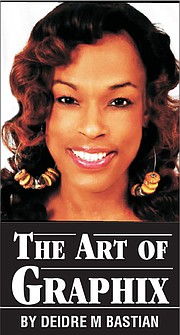In this Information Age, and its impact on the ever-evolving global economy, change is now the norm for business. But, despite its presence everywhere, change does not come easy. Companies sometimes fail to make critical reforms due to an ingrained resistance to change.
Here are a few reasons why people resist change:
Mindset: Many employees, who regard the workplace as their only source of income, will always want to have a simplified job format. When the company begin to make changes to its operations, what immediately comes to an employee’s mind is: “Will the change simplify or complicate my work?”
Change of routine: When employees are comfortable in following a routine, they want to remain there, as they fear they may have to work harder or do things differently.
Lack of knowledge/ expertise: Employees may resist change simply because they lack sufficient knowledge or expertise. Not knowing much about the specifics of the change, they imagine it will be difficult to deal with and therefore resist giving it a chance.
Workload: Change is always assumed to be hard, especially in a company and, as a result, an overwhelming feeling of overload may arise.
Unwilling to learn: Some employees feel their work does not require further advancement, and are therefore unwilling to learn something new, which produces opposition.
Compensation: Compensation is one of the main factors that makes employees perform better. If they feel that the change in operations will not make a difference on their pay slip, then they may not be interested.
Loss of freedom: Employees who have reached a certain level of personal freedom at a workplace do not want to lose that luxury.
Loss of status or job security: Employees, peers and managers have a tendency to resist administrative and technological changes that may result in their role being eliminated or reduced. The fear of losing control, power, position or status is a concern.
Poorly-aligned reward systems: There is a common saying that “managers get how they reward”. Therefore, companies will resist changes when there is no reward to support what is being implemented. Resistance occurs when employees cannot answer: “What’s in it for me?”
Surprise and fear of the unknown: The less your team members know about the change and its impact on them, the more fearful they may become. A company needs to be prepared for the change and not surprised. In fact, ongoing communication is one of your most critical tools for handling resistance to change.
Mistrust: Change does not succeed in a climate of mistrust. Spend some time rebuilding trust if you seek to yield better results from the reform effort.
Company politics: Some resist change as a political strategy to maliciously “prove” that the decision is wrong, or that the person leading the change is incompetent. Others may resist due to the fear of losing power, and are therefore committed to watching the change effort fail. Political obstacles are frustrating when you are trying to implement needed change in a company.
Fear of failure: Team members may resist changes because they are worried they may not be able to adapt to new work requirements, and therefore fear failure.
Bad timing: Sometimes undue resistance can occur due to changes being introduced in an insensitive manner or at an awkward time.
How will change benefit companies and employees? Human beings generally do not like “change”, as they prefer things to remain the same to preserve their comfort zone. When companies make positive changes, it helps to build competition, bring technological advances and develops satisfied customers, which in turn increases productivity.
Change is inevitable...... nothing stays the same. Subtle changes can have a significant impact over time, especially as engaging in the same obsolete methods usually only results in malfunctions. Until we meet again, fill your life with memories rather than regrets. Enjoy life and stay on top of your game.
NB: Columnist welcomes feedback at deedee21bastian@gmail.com
ABOUT COLUMNIST: Deidre M. Bastian is a professionally-trained graphic designer/brand marketing analyst, author and certified life coach with qualifications of A.Sc. B.Sc. M.Sc. She has trained at institutions such as: Miami Lakes Technical Centre, Success Training College, College of The Bahamas, Nova Southeastern University, Learning Tree International, Langevine International and Synergy Bahamas.





Comments
Use the comment form below to begin a discussion about this content.
Sign in to comment
OpenID